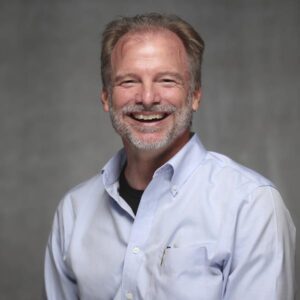
Dr. Alan Tinkler, associate professor of English, has spent the better part of his professional career dedicated to bettering the world. Through decades of extensive volunteer work ranging from his time in Papua New Guinea with the PeaceCorps to his role on the Community Impact Team with the United Way of Northwest Vermont, and his dedication to the Shepherd Higher Education Consortium on Poverty (SHECP), Tinkler has worked tirelessly to inform, educate and transform the world for those living with poverty.
A relatively recent addition to Missouri State and the College of Arts and Letters, he comes to us from the University of Vermont where he served as an associate professor in the department of education for a decade.
It was during his tenure at the University of Vermont that he first began working with SHECP, an alliance currently comprised of 26 universities that seek to endow future leaders with the necessary understanding and capabilities to dedicate their lives to professional and civic efforts intended to diminish and enhance human capability, while also providing a network of support for students, faculty, staff and alumni engaged in the study of poverty. Tinkler has served on the SHECP board for the past several years, filling the role of chair for the last year.
On September 12, 2019, The Globe Newswire reported that SHECP had named Tinkler as the new governing director of their organization. “As board chair, I am excited to contribute my efforts to advance the vision of SHECP, which is to expand and improve opportunities to study the meanings, causes, and consequences of poverty in a wide range of disciplines,” said Tinkler regarding his appointment.
In the days since, the news of his new position within SHECP has been reported by several sources including ABC Fox Montana and Philanthropy Journal News.
Given Tinkler’s history of community and civic service, there is no doubt that he will achieve great things for the Missouri State community and forSHECP as he continues to better the world by increasing awareness and comprehension for poverty while also diminishing the stigma for those in need.

